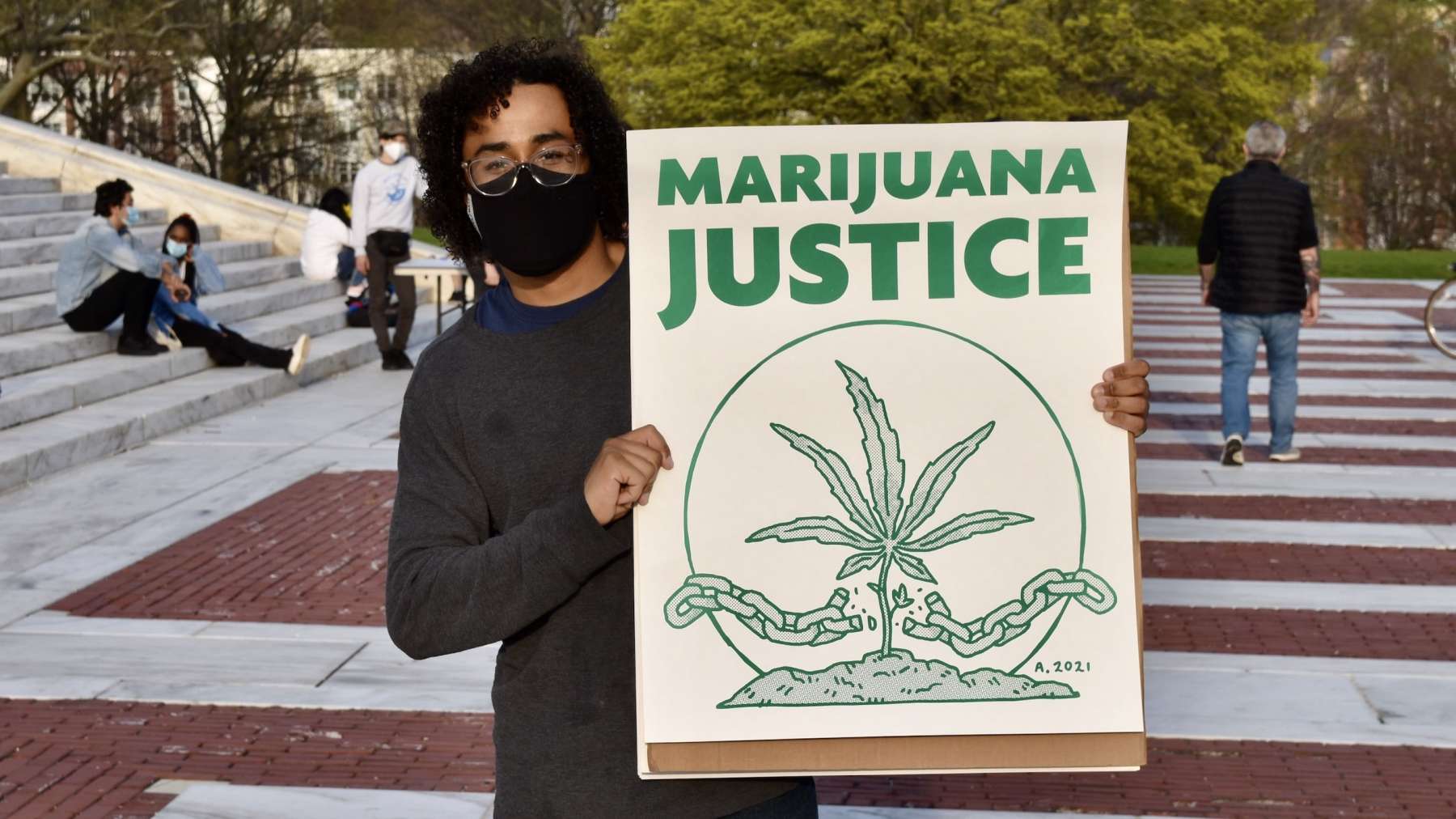Marijuana bill brings praise, and renewed calls for automatic expungement
“…there is no excuse to deny automatic relief from past arrest records and criminal convictions to tens of thousands of Rhode Islanders who have been victims of this failed war on cannabis,” said Cherie Cruz, co-founder of the Formerly Incarcerated Union of RI. “If we’re going to repair some of the damage that has been done, we have to have automatic expungement.”
March 1, 2022, 5:14 pm
By Uprise RI Staff
Today, leaders in the Rhode Island General Assembly introduce legislation to legalize cannabis for adults 21 and older. The Formerly Incarcerated Union of RI, the Working Families Party, Reclaim RI, and the Marijuana Policy Project applauded the bill and its inclusion of a social equity licensing program – including a first-in-the-nation reservation of retail licenses for worker-owned cooperatives – which will benefit people disproportionately impacted by the war on drugs.
Representative Scott Slater and Senator Joshua Miller, along with many cosponsors in the House and Senate, formally introduced a pair of identical bills to legalize, regulate, and tax cannabis for adults 21 and older in Rhode Island. The legislation (2022-S 2430, 2022-H 7593) would legalize the sale and possession of up to 1 ounce of cannabis for those age 21 and up, with no more than 10 ounces for personal use kept in a primary residence, effective Oct. 1. It would also allow Rhode Islanders to grow a small amount of their own cannabis at home. The long-awaited legislation is the product of many months of discussions among top lawmakers in the state, including Senate President Dominic Ruggerio and Speaker of the House Joseph Shekarchi, who have both indicated they believe this to be the year Rhode Island joins 18 other states with adult-use cannabis legalization laws. The first committee hearing on the bill is expected to be scheduled toward the end of this month.
See also:
- Legislators reiterate call for social and racially just marijuana legislation
- Better than New York? Cannabis legalization in RI needs to center social and economic justice, say advocates
- Reclaim RI’s 420 rally for racial and economic justice in cannabis legalization law
The legislation would:
- Allow adults to possess and purchase up to one ounce of cannabis (and up to 10 ounces in a person’s residence) and cultivate up to three cannabis plants in their homes;
- Establish a three-member commission appointed by the governor and leaders of the General Assembly to oversee the regulation and licensing of cannabis businesses;
- Impose a cannabis retail excise tax of 10%, in addition to the normal sales tax rate of 7%, with another 3% local sales tax;
- Require that a quarter of all new retail licenses be awarded to applicants that qualify as social equity businesses and another quarter of new licenses to worker-owned cooperatives; and
- Create a social equity assistance fund to provide grants, job training programs, and social services for communities disproportionately impacted by cannabis criminalization.
A comprehensive summary of the legislation can be found here, while the full text of the measure can be found here.
Advocates vowed, however, to push legislators to amend the bill and add improved language around the expungement and sealing of past criminal records related to cannabis. The groups pointed out that states with automatic expungement policies for past marijuana convictions, such as California and Illinois, are far more effective and provide relief to many more individuals compared to states with non-automatic expungement policies. Automatic expungement will also prove less costly to state government.
“The criminalization of cannabis has done harm to so many families in our state, and we are grateful to see the legislature moving forward with a more sensible policy of legalization,” said Cherie Cruz, co-founder of the Formerly Incarcerated Union of RI. “However, there is no excuse to deny automatic relief from past arrest records and criminal convictions to tens of thousands of Rhode Islanders who have been victims of this failed war on cannabis. If we’re going to repair some of the damage that has been done, we have to have automatic expungement.”
“Without an automatic record clearance process, Rhode Island will continue to fail the very communities who bear the brunt of the war on drugs to this day,” said Gracie Burger, State Policy Director, Last Prisoner Project. “To begin to right the wrongs of prohibition and make legalization accessible to all residents, the onus must be on the government to remove these erroneous convictions from peoples’ records, so that they may begin to rebuild their lives.”
Advocates emphasized that a criminal record for cannabis can have lasting negative effects for individuals seeking housing, education, and employment opportunities. In addition, it will be far more efficient for Rhode Island courts to automatically expunge all past possession records rather than engage in the costly process of expunging records one at a time. Advocates also call on the legislature to provide a process for individuals convicted of additional marijuana offenses to have their records expunged.
“I want to emphasize that the bill introduced today is not the final product,” said Speaker Shekarchi, “rather, it is the beginning of the public process of legalizing cannabis for recreational use in Rhode Island. We welcome input from the public as to whether or how we should implement recreational usage, and I expect robust discussions with House membership as well.”
“Rhode Island has taken a historic step toward becoming the first state to reserve licenses for worker-owned cooperatives,” said Miguel Martínez Youngs, Organizing Director of Reclaim RI. “Co-ops and social equity ensure that the benefits of legalization go to those who suffered the most under prohibition and not just to Big Weed. But without automatic expungement, we will still be punishing those people for something that isn’t even a crime anymore. We look forward to working with legislators to amend the bill.”






